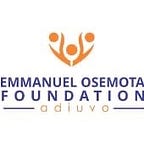Meningitis: Signs, Symptoms, and Its Global Impact
Meningitis — the word alone strikes fear into many parents’ hearts. Life-threatening and almost always severe, the consequences of meningitis aren’t like other infections.
Deafness, epilepsy, and life-long cognitive deficits occur in infants and adolescents worldwide due to insufficient medical care.
In 2019, 7.7 million people worldwide were diagnosed with meningitis leading to almost a quarter of a million deaths — down from 433,000 in 1990.
Even if treated, bacterial meningitis has a death rate of around 15%. For the millions living in Africa’s Meningitis Belt — stretching from Senegal to Ethiopia — the annual outbreak spells disaster.
What is Meningitis?
Meningitis arises when the meninges, the protective layers surrounding our brain and spinal cord, become inflamed.
This inflammation can kick off a cascade of symptoms — anything from a simple fever or headache to severe complications like seizures and, tragically, even death.
Types of meningitis include:
Bacterial Meningitis: Commonly occurring as a secondary infection, it’s an extremely severe form of the disease with a high risk of life-threatening complications.
The main culprits are Streptococcus pneumoniae (responsible for pneumonia) and Neisseria meningitidis (meningococcal meningitis). These bacteria enter the bloodstream directly or via a secondary infection and infect the brain, precipitating inflammation.
Viral Meningitis: Commonly caused by enteroviruses, viral meningitis is typically less severe than its bacterial counterpart. Other viruses like herpes simplex and HIV can also cause this type of meningitis. It is often mistaken for the flu due to its mild symptoms.
Fungal Meningitis: This rare type of meningitis often occurs in individuals with weakened immune systems. Cryptococcus neoformans and Histoplasma capsulatum are examples of fungi that can cause this condition.
Parasitic Meningitis: This is a rare type of meningitis caused by parasites. An example is Naegleria fowleri: a parasite found in warm freshwater environments.
Non-infectious Meningitis: This can occur due to non-infectious causes such as lupus, certain drugs, head injury, or brain surgery. The inflammation is typically a response to an injury or a disease process rather than an infection.
Chronic Meningitis: A slowly developing inflammation often caused by slow-growing organisms such as mycobacteria or fungi, like the one that causes tuberculosis.
Signs and Symptoms of Meningitis
Recognizing the symptoms of meningitis can facilitate early treatment, potentially saving lives. Symptoms can develop over several hours or a few days, and they may include:
- High fever
- Severe headache
- Stiff neck
- Sensitivity to light (photophobia)
- Vomiting or nausea
- Confusion or difficulty concentrating
- Sleepiness or difficulty waking up
- Seizures
In babies, signs can also include inactivity, irritability, poor feeding, and a bulge in the soft spot on top of a baby’s head (fontanel). If you or a loved one experience these symptoms, especially in combination, seek immediate medical attention.
Complications of Meningitis
If not treated promptly, meningitis can lead to severe complications, including:
- Brain damage
- Hearing loss or deafness
- Memory difficulties
- Learning disabilities
- Gait problems
- Seizures
- Kidney failure
- Shock
- Death
Treatment typically involves antibiotics for bacterial cases, antivirals for viral cases, and antifungal medications for fungal meningitis. In low-resource settings, access to such treatment can be challenging, emphasizing the importance of prevention and early detection.
Meningitis Around the World
Meningitis is a global health concern, with certain regions bearing a higher disease burden. A primary example is the ‘meningitis belt’ in sub-Saharan Africa, a swath of land that stretches from Senegal in the west to Ethiopia in the east.
This area regularly experiences meningitis epidemics, particularly meningococcal meningitis, a devastating form of the disease that can lead to large-scale outbreaks with high fatality rates.
Within the meningitis belt, the disease’s impact extends beyond immediate health effects.
It puts enormous strain on healthcare systems, disrupts education due to school absences, and hinders economic development as it affects the most productive age groups.
Meningitis outbreaks in the belt are complex; influenced by various factors, including climatic conditions, population displacement, and immune status.
Dry, dusty winds and cold nights of the dry season, combined with overcrowded living conditions, can facilitate the spread of the causative bacteria Neisseria meningitidis.
The need for an effective and accessible global vaccination program against meningitis, especially in these high-risk regions, is of paramount importance.
Vaccines exist for many forms of bacterial and viral meningitis, and they have proven to be the most effective strategy to control and prevent outbreaks.
However, in many developing countries, access to these vaccines remains a significant challenge due to factors like cost, delivery logistics, and local healthcare infrastructure.
In response, global health organizations, governments, and non-governmental organizations are teaming up to tackle meningitis.
There have been notable efforts, such as the MenAfriVac project, which, according to a 2021 analysis, led to a precipitous drop in Neisseria meningitidis A (NmA) cases.
Moving forward, the focus is on expanding these efforts, developing better vaccines, improving vaccine delivery systems, and strengthening local healthcare facilities.
The goal is to ensure every individual, regardless of where they live, has access to lifesaving vaccines against meningitis, bringing us closer to a world free from this debilitating disease.
Written by: Emmanuel J. Osemota
